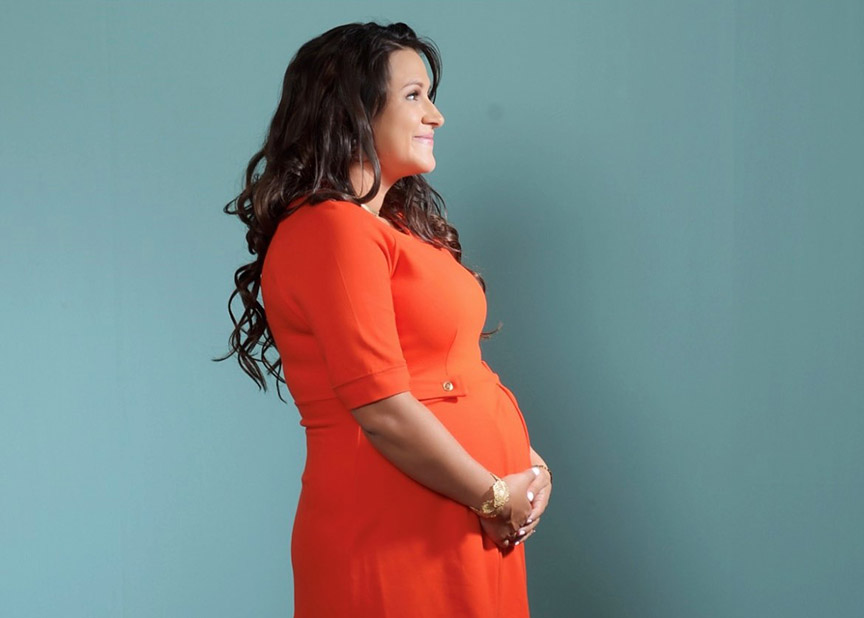
How this 41-year-old mom manages her food anxiety after a geriatric pregnancy
A friend asked me recently what life would have been like if I hadn’t had kids. My kids are just out of diapers and still full of energy and enthusiasm, so I reflexively answered, “Well, I’d get to chat with my husband again.” We both laughed. The truth is not a single thing stayed the same after having babies. Not my friendships, my career, my physical body, or my self-identity. Nothing. When you’ve been through that type of transformation, you really can’t fathom what life would have been like if you’d made different choices. Her next question hit me even harder, “Would managing your anxiety be the same without kids?”
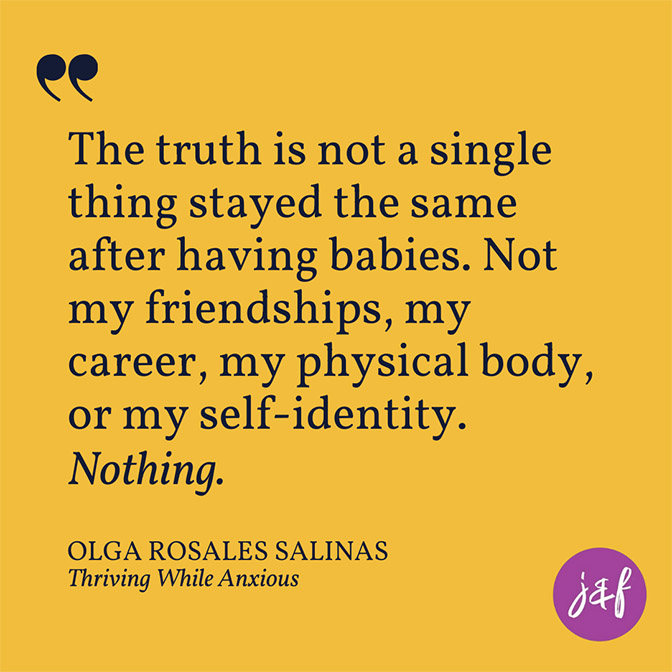
How my anxiety changed after having kids
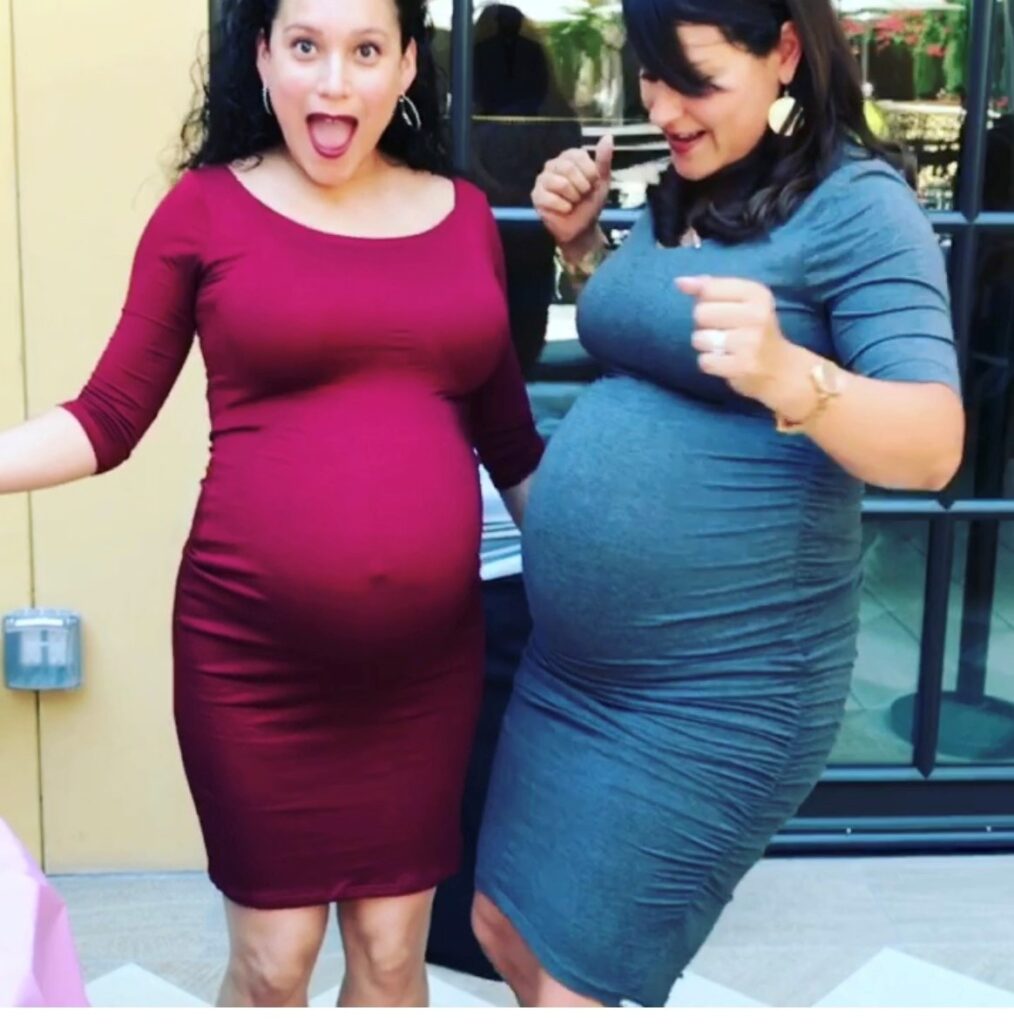
Before I had kids, managing anxiety was already a significant part of my life: I was in therapy, took medication, and found hobbies to cope. My anxiety was recognizable, if not manageable. After kids, several new daily triggers for my generalized anxiety popped up, mostly related to the physical changes happening to my body and — unexpectedly — food. During each of my pregnancies, I gained between 50 and 70 pounds. I had gestational diabetes for both pregnancies, which meant that I had to see a dietician once a week and an OBGYN because of my geriatric pregnancy. If you think that being hyper-focused on the weight is all in your head, try getting weighed twice a week by medical professionals—mandated by insurance, no less.
It’s not all bad, though! While my body has morphed like Play-Doh in the past five years, my personal development after kids has been surprising, and I’m proud of myself. To answer my friend’s question, having kids changed me for the better in many ways, and I wouldn’t do it differently. That said, some specific challenges related to my food anxiety have reared their head. Here, I’ve collected the pros and cons of having children if you’re someone who manages or suffers from food-centered anxiety, as I do.
The pros and cons of motherhood in managing anxiety
PRO
It is a breath of fresh air to un-center myself from daily life. My kids don’t care that I am an anxious mom. They don’t care what I look like, or what I eat. They’re just living their best life, and they help me realize that my problems are minor and won’t last. Their security and need for autonomy are the most important things to them—not me, what I eat, or how I feel. That’s a PRO.
CON
I grew up believing that leaving food on your plate was a sin. I know I’m not the only mother who finishes their kids’ plates on principle. I grew up in a home with eight people, so food insecurity was part of our life. That means sometimes I’m anxious when my kids don’t want to eat. It’s not their fault that my relationship with food is complicated, but it is my responsibility to take ownership of that anxiety and to manage it. Here, a therapist is key.
PRO
Watching my eldest son have anxiety around dinner time is probably the best example of generational trauma that I can pinpoint. I hope to break that cycle of dysfunction through self awareness. For example, I encourage — but don’t force — my kids to eat. I learned that being realistic about their portion sizes helps manage food waste as well as our relationships. Also, my son’s worries about small things like dinner time act as a mirror for me. As I soothe and comfort him, I help calm myself. I can’t imagine that I would have learned how to do that if I hadn’t had kids.
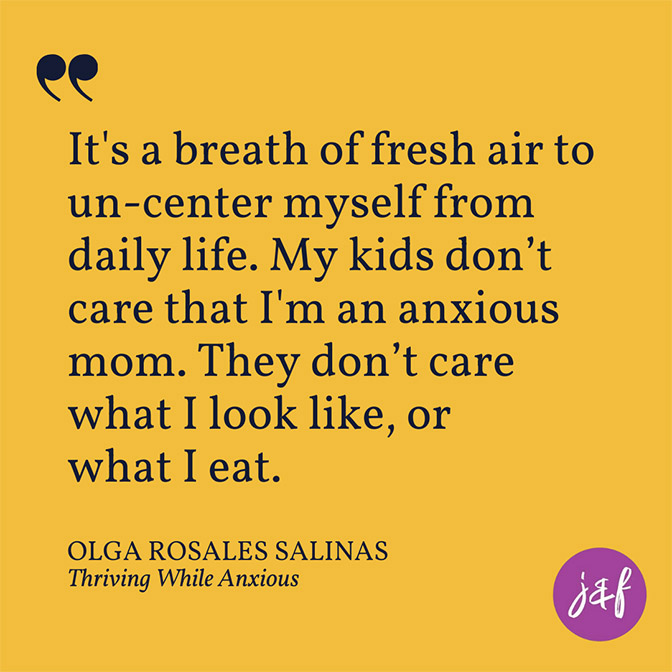
CON
Pelvic floor, hip width, and shoe size — oh my! My body, and my lady parts, are different. My hips have turned out, and my hair never grew back after labor. These changes aren’t a problem except that I believed I would “bounce back” after pregnancy. I thought I would train back to my pre-baby body. No one told me that my pre-baby body would be inaccessible because muscle mass and weight distribution would fundamentally change. My anxiety in this new body has made me feel lazy, which is absurd because I train everyday. I’ve found myself understanding my physical changes intellectually, yet being overwhelmed by society’s impossible standards for fit-moms. Separating these standards from my own task of feeling fit has been paramount. The real practice has been in managing what I can emotionally, while continuing to do what I’ve been doing physically. Along the way I’ve learned that loving my post-baby body has been an integral part of loving my post-baby life.
PRO
Those gray and thinning patches of hair? They would have happened anyway as a 41-year-old woman. They aren’t a direct result of having children. This realization is a PRO because aging is better when you don’t blame your kids for it.
CON
Sometimes anxiety feels like hunger. That’s confusing when you’ve already eaten. Sometimes filling up on five to six meals, a.k.a. binging, will have you thinking that the anxious feeling will go away once you’re done. This will continue to be a problem until you can define the difference between hunger and ‘butterflies’. The only thing I can suggest here is, therapy, therapy and more therapy.
PRO
I no longer crash diet or fast. There’s no need, and after watching my kids’ reactions to missing meals, I realize how detrimental fasting is for my own well being. Fasting and crash dieting in your 20s and 30s was uncomfortable, but did come with some results. Discomfort was probably the worst of it. In your 40s a crash dieting comes with hair loss, muscle loss, and depletion of nutrients that can have severe consequences because we’re older. Crash dieting was an optical illusion at best in my 20s. Now, it doesn’t even provide the illusion of health. It’s just bad for me.
PRO
My kids don’t care about any of the diet noise. They want to laugh; they want to choose their own toys and hobbies; they want to decide for themselves when they’re full. That’s it. Everything else is small in comparison. I have one job as a mother, and yes, that job is overwhelming, but it is just one.
How I regained control of my physical health after a geriatric pregnancy
After having babies I was, of course, physically exhausted. But, I also felt emotionally defeated when I didn’t recognize myself in the mirror. It wasn’t so much that I wanted to lose the baby weight as much as I wanted to feel like myself again. It was as if I was starting over in someone else’s body. A 5’3″ body that was 70+ lbs overweight.
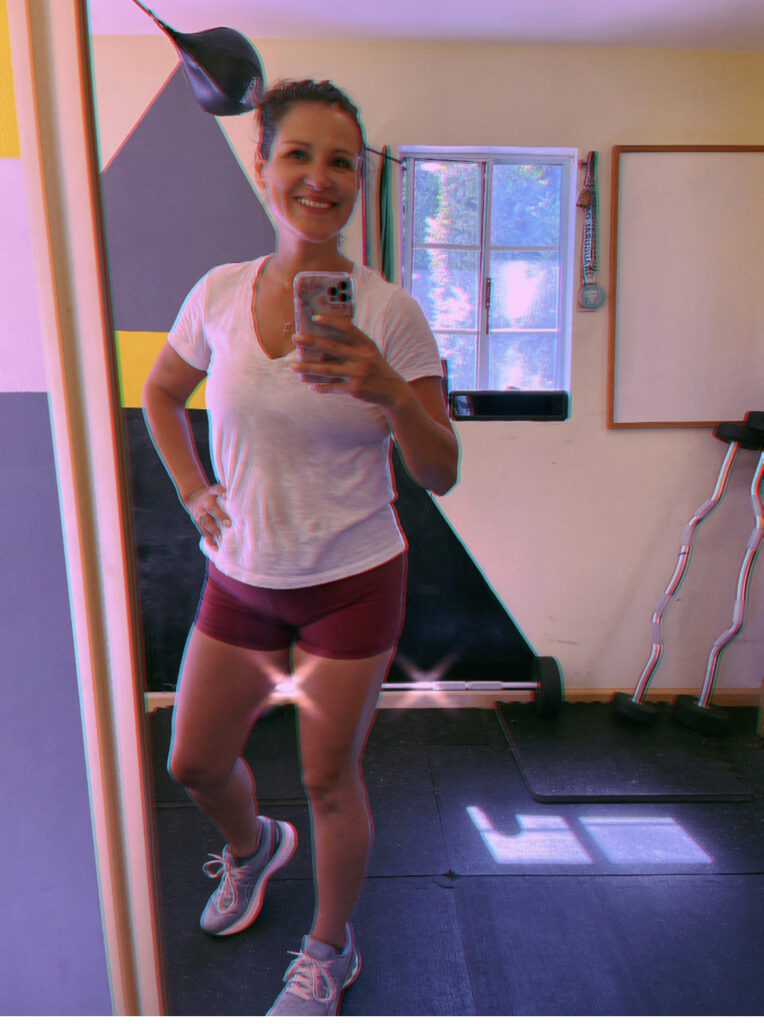
Before babies, I loved endurance training. I’d run three full marathons and about thirty half marathons. A dear friend of mine and I had started an outdoor bootcamp on a football field where we coached our friends through high-intensity-interval-training (or H.I.I.T.). It was fun! After my second baby, I would look at pictures of me as a coach and feel as though I was staring at a stranger. I would have said goodbye to that stranger forever if the threat of type 2 diabetes hadn’t scared me post-pregnancies. For mothers who have gestational diabetes while pregnant the risk of developing type 2 diabetes is 50% higher than moms who don’t have GD. I knew that if I wanted to really get to a BMI that didn’t put me at risk for type 2 diabetes, I had to fix my relationship with food.
My food-centered anxiety lives in the kitchen. That doesn’t mean that I avoid the kitchen because I’m anxious. It means I have to listen for my triggers in order to make the best decisions to support my mental health. I had to learn what micronutrients were (the makeup of food) and get into a realistic routine. I worked with a therapist to suss out the root causes of my food-centered anxiety disorder. I learned that, like every other anxiety trigger, food anxiety is manageable if I’m aware enough about it. If I’m familiar enough, I can ask myself what my realistic goals are and what I’m willing to do to attain them.
None of this is easy. If you’re struggling with food-centered anxiety like me, reach out for professional help when you need to. A therapist can help you decipher what is within your control. They can help sort what will help you feel like yourself again and what is an impossible standard set by society. The difference is essential when dealing with body image and food-centered anxiety.
Sorry, the comment form is closed at this time.

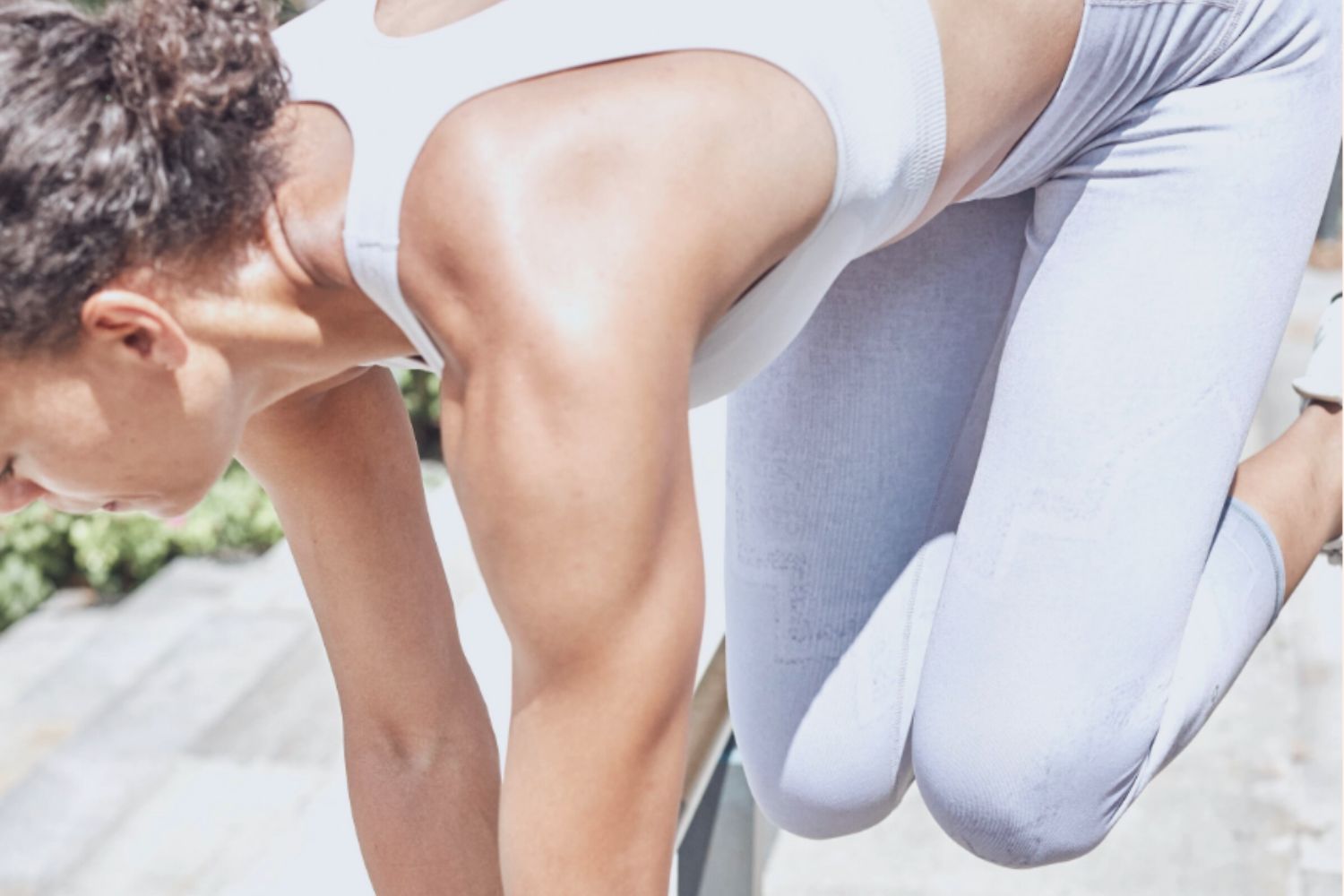
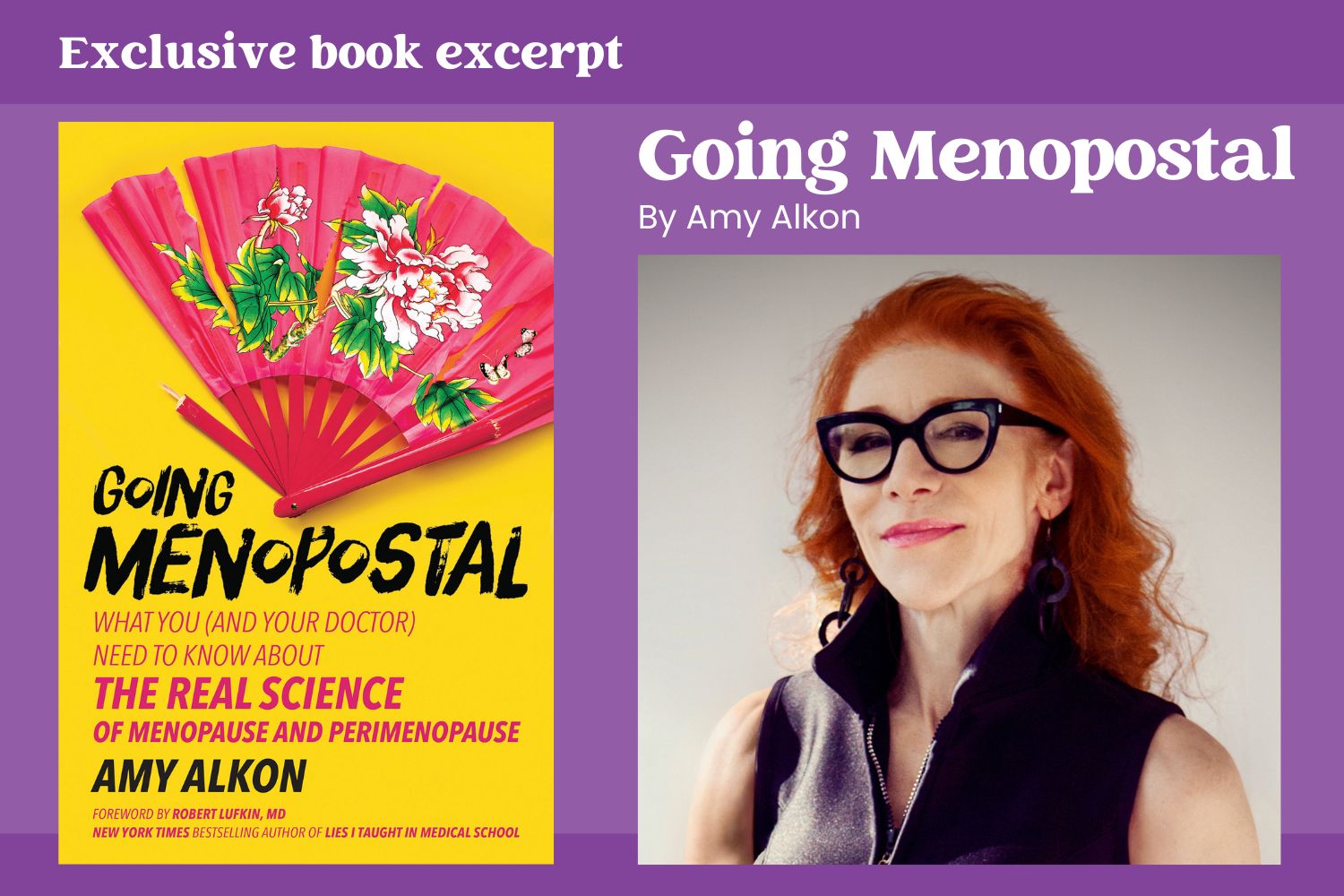
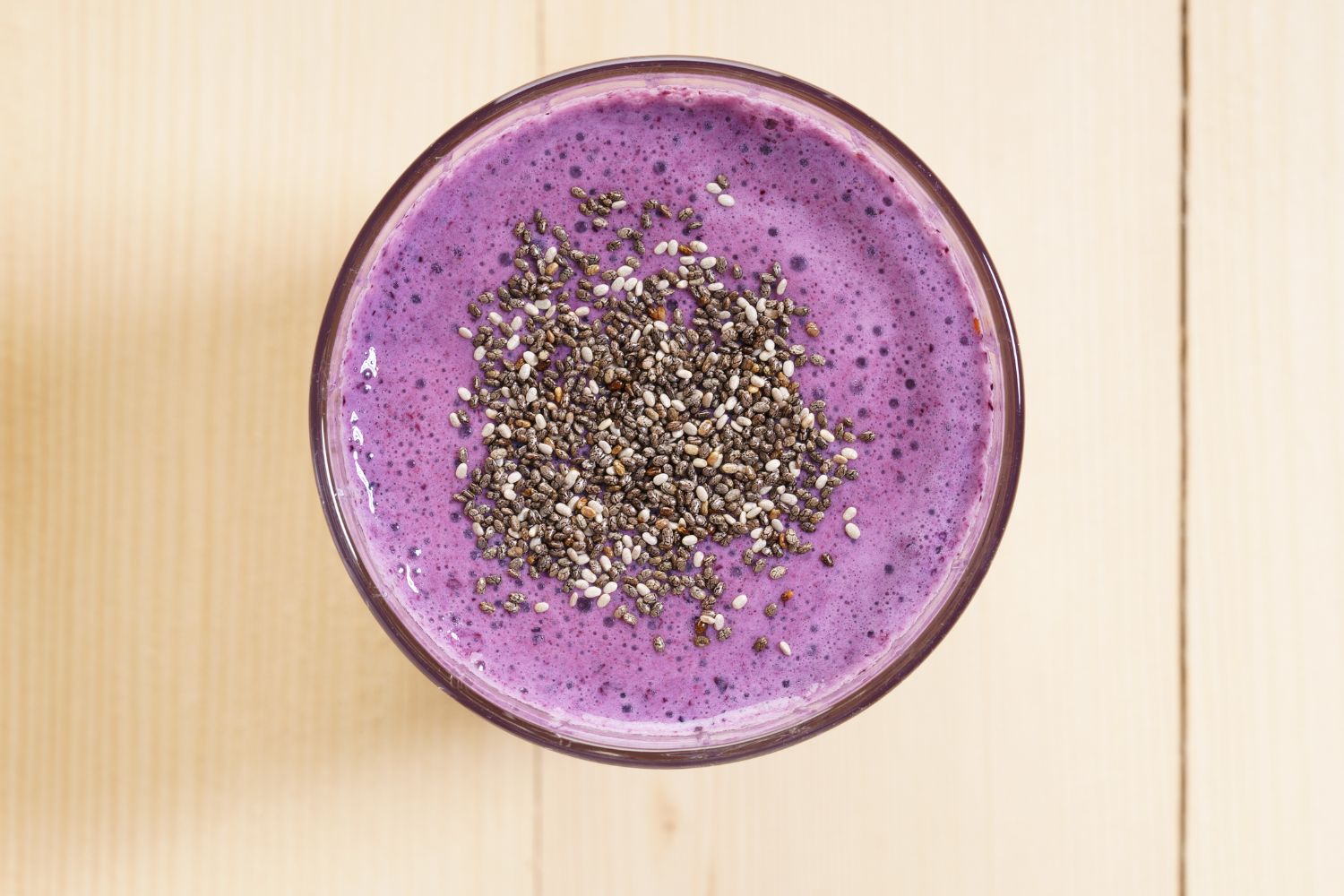
Morgan Mendoza
This is such a well written piece and I like the positive energy in your writing.
https://tinytwigorganic.com/